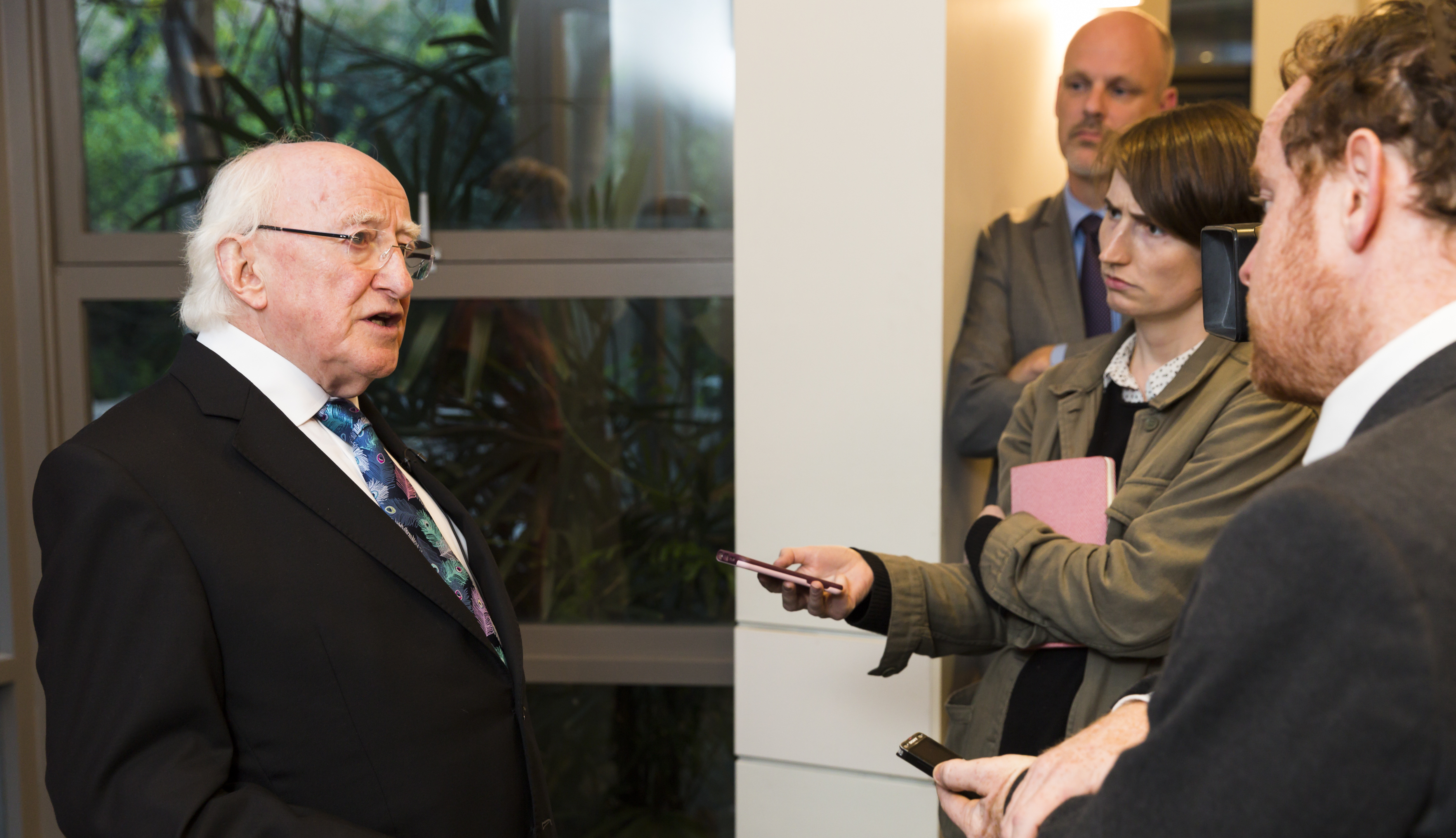Why do we measure everything and value nothing?

The President of Ireland questions neoliberalism
Published 20 October 2017
Episode 31
In this episode of The Policy Shop the President of Ireland, Michael D. Higgins, calls for a re-introduction of moral and ethical considerations into economic thinking, questioning the dominance of neoliberalism and the privileging of economic management over human needs.
The University of Melbourne, home to the Gerry Higgins Chair in Irish Studies, bestowed an honorary doctorate on Ireland’s ninth President, while he was on a State visit to Australia.
Episode recorded: 13 October 2017 Series Producer: Eoin Hahessy Audio engineer: Gavin Nebauer
Banner image: Drew Echberg
Subscribe to The Policy Shop through iTunes.

